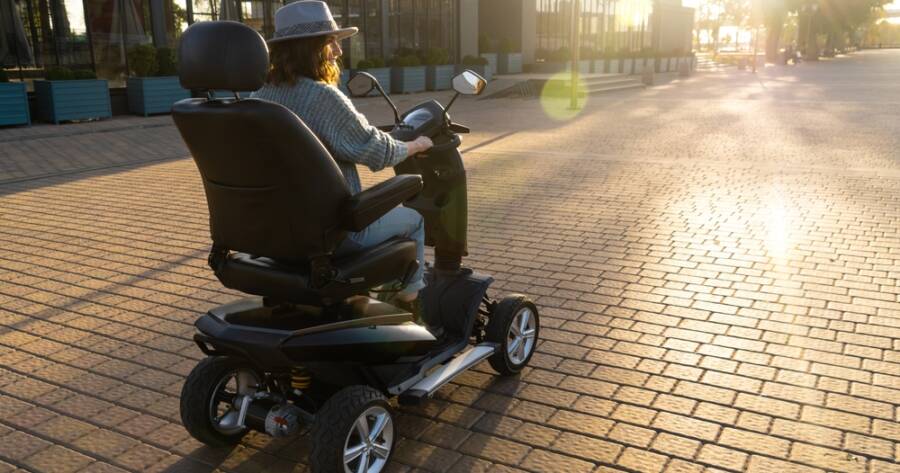Mobility scooters can significantly enhance independence for individuals experiencing difficulties with mobility, providing them with an improved quality of life. Understanding Medicare’s potential coverage for mobility scooters is vital for those seeking financial assistance for these helpful devices. Eligibility depends on several criteria, including medical necessity and the ability to safely operate the scooter. Navigating Medicare’s policies can be daunting, but knowing the key points can clarify whether you might qualify for coverage, empowering informed decisions about mobility options.
Understanding Medicare Coverage
Medicare Part B, which covers durable medical equipment (DME), might offer coverage for mobility scooters under specific conditions. To qualify, a healthcare provider must confirm that the scooter is medically necessary and that the patient cannot functionally use a walker or manual wheelchair. This determination usually comes after an assessment of the individual’s condition and mobility difficulties.
Additionally, the prescribing healthcare professional should document the need for a mobility scooter in the patient’s medical records. Medicare mandates this documentation as part of its compliance requirements. Covered scooters must also be sourced from suppliers enrolled in Medicare’s DME program. This ensures that all transactions adhere to Medicare’s standards, safeguarding both quality and compliance for beneficiaries.
Eligibility Criteria and Assessment
Eligibility for a Medicare-covered mobility scooter is primarily contingent on demonstrating medical necessity. Typically, a thorough assessment by a healthcare provider evaluates an individual’s mobility limitations and current equipment inefficiencies. This assessment might involve testing physical abilities and analyzing how mobility issues affect daily living activities.
Functional capabilities, such as balance and motor skills, factor into determining eligibility for scooter use. It’s important to prove that the scooter serves as a functional necessity, allowing access to routine activities within and outside the home. Documenting these challenges enhances the argument for necessity, which is critical in satisfying Medicare’s conditions for coverage.
The Role of Healthcare Providers
Healthcare providers play an essential role in the process, guiding patients through medical evaluations and documentation. The provider must conduct a comprehensive assessment of the patient’s medical history and therapy needs, forming the basis of the medical necessity evaluation. This detailed assessment aids in constructing a persuasive case for Medicare submission.
Collaborating closely with healthcare providers familiar with mobility impairments ensures documentation is accurate and comprehensive. Providers facilitate referrals to physical or occupational therapists if additional evaluation is needed. This collaboration ensures the holistic management of mobility needs and supports an informed Medicare application process.
Navigating Medicare’s Documentation Requirements
Medicare’s documentation standards are specific, requiring thorough and precise records that justify the need for a mobility scooter. The process includes submitting a written prescription from the healthcare provider, supporting the medical necessity argument. It also entails completing documentation forms to verify the patient’s condition and daily life impact evaluation.
Working with Medicare-approved suppliers ensures that equipment provision aligns with Medicare requirements. Suppliers aid in navigating the documentation process, assisting in submitting necessary paperwork and verifying compliance. Adhering to these documentation stipulations is imperative for accessing Medicare coverage, preventing delays and denials in the approval process.
Common Barriers and Solutions
Despite the clear pathways to gaining Medicare coverage for a mobility scooter, individuals might face specific barriers. Misunderstanding Medicare coverage policies can lead to expectations misalignment and potential denial of benefits. Engaging with knowledgeable professionals, including healthcare providers and suppliers, can help clarify these policies.
Another issue involves incomplete or incorrect documentation, which may result in processing delays. Ensuring that paperwork is completed accurately and comprehensively avoids holdups. Consulting Medicare advisors or advocacy groups could also provide further guidance and advocacy to ensure a smooth and transparent approval process, assisting in overcoming barriers efficiently.
Learn More Today
Understanding how Medicare might cover mobility scooters unveils opportunities to enhance your independence and quality of life. By exploring eligibility criteria, engaging with healthcare providers, and adhering to documentation requirements, you strengthen your chance of securing coverage. Addressing potential barriers proactively opens pathways to approval, enriching daily life through enhanced mobility.
Stay informed about Medicare’s evolving policies and reach out to resources like suppliers and healthcare advisors for tailored assistance. With a clear grasp of Medicare stipulations, you can make empowered decisions regarding your mobility solutions. Begin exploring your options, and take the first step toward enriching your mobility and lifestyle with clarity and confidence in your eligibility journey.

